Abstract
Experiment 1 demonstrated that delayed matching-to-sample in the capuchin monkey was superior when the delay interval was spent in darkness rather than in moderate illumination. In contrast with previous studies in which the delayed-matching ability of primates appeared limited to 60 sec or less, in the dark condition all subjects showed above-chance matching at a 120-sec delay interval. Experiment 2 verified that darkness during the delay interval can facilitate delayed matching and provided evidence that the effective variable was the illumination level of the delay interval rather than change in illumination, which in Exp. 1 was confounded with illumination level.
Full text
PDF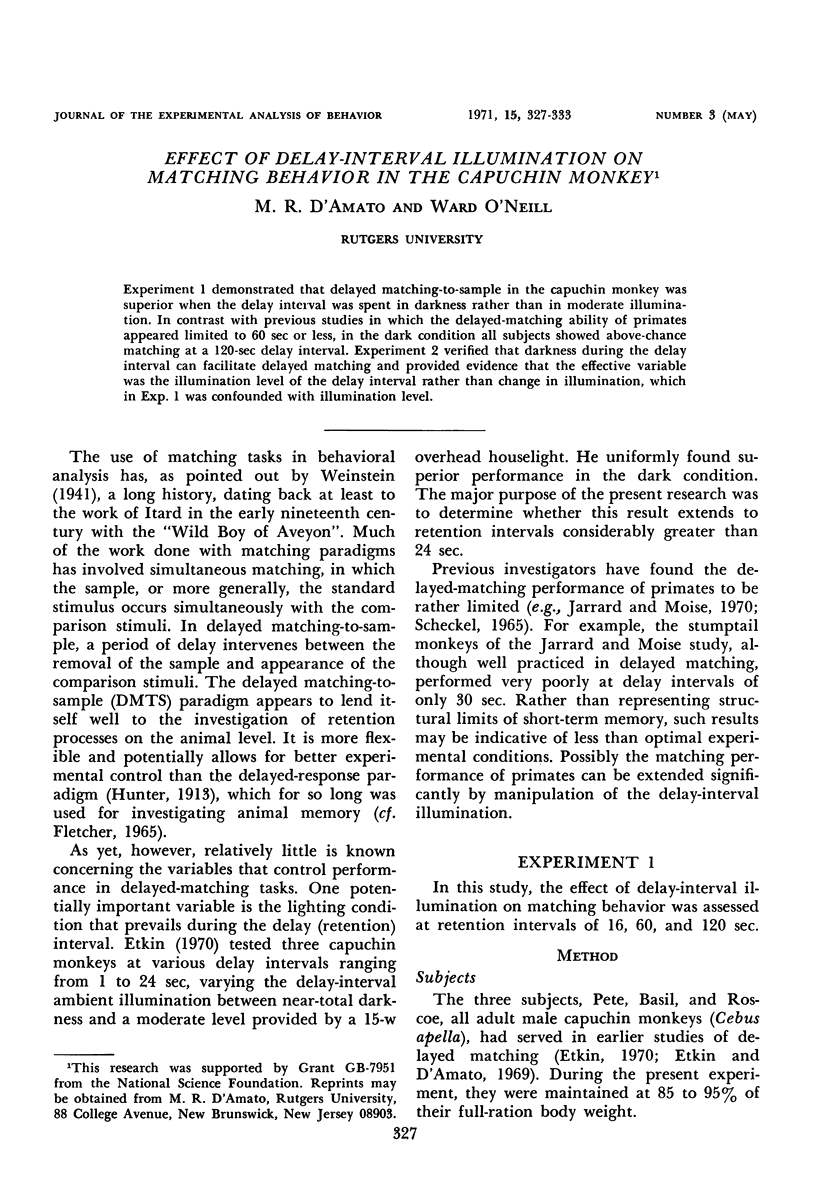
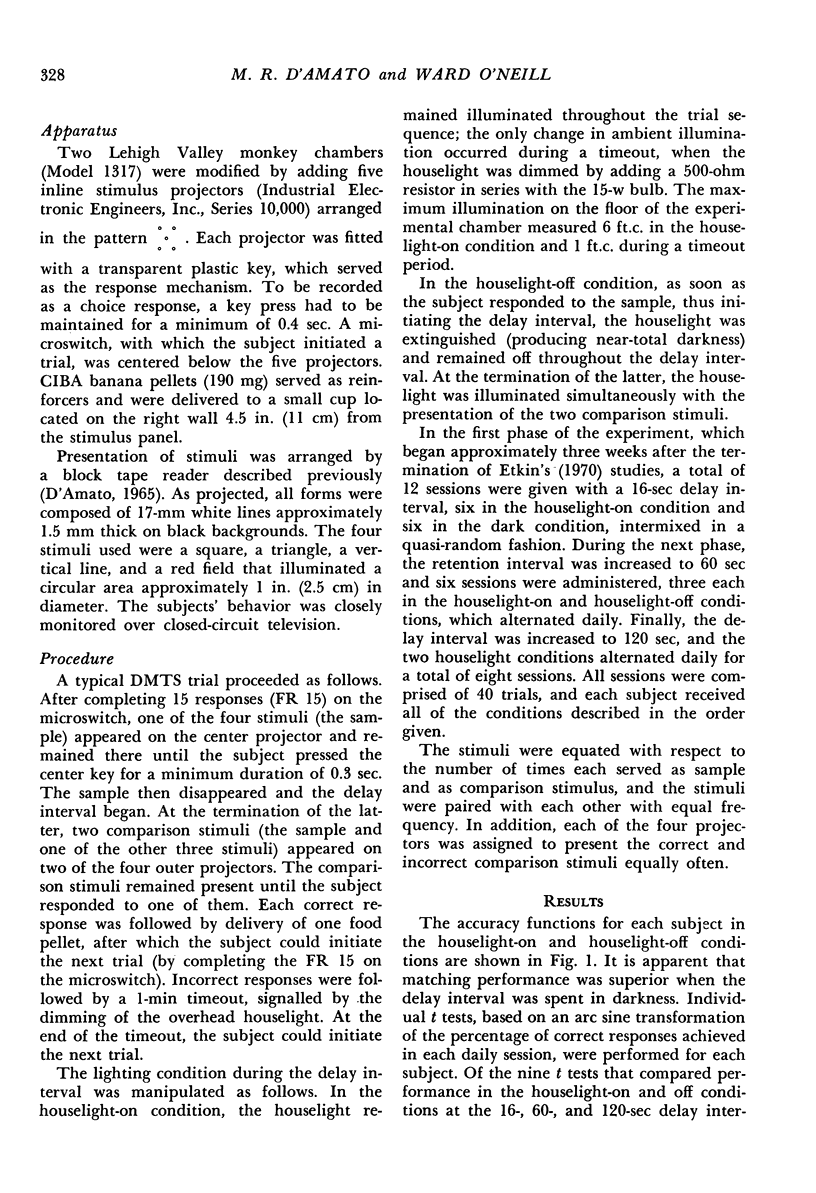
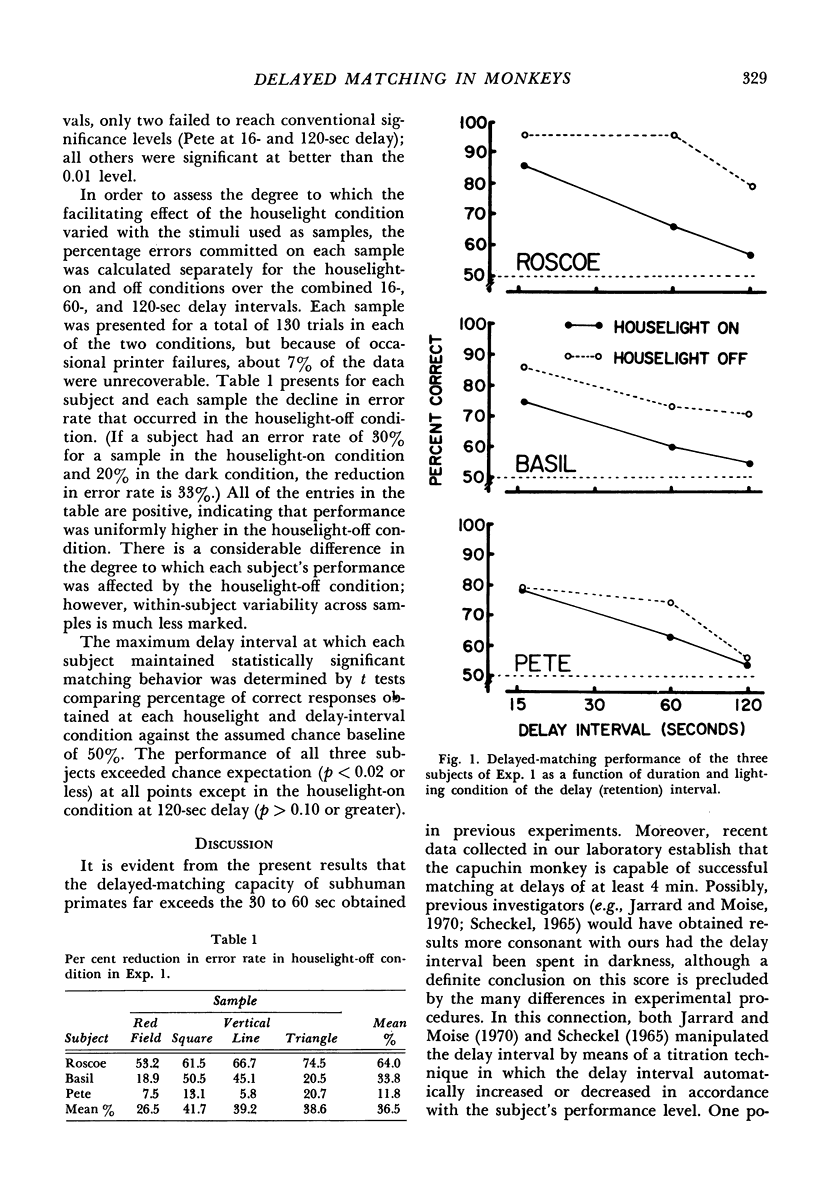
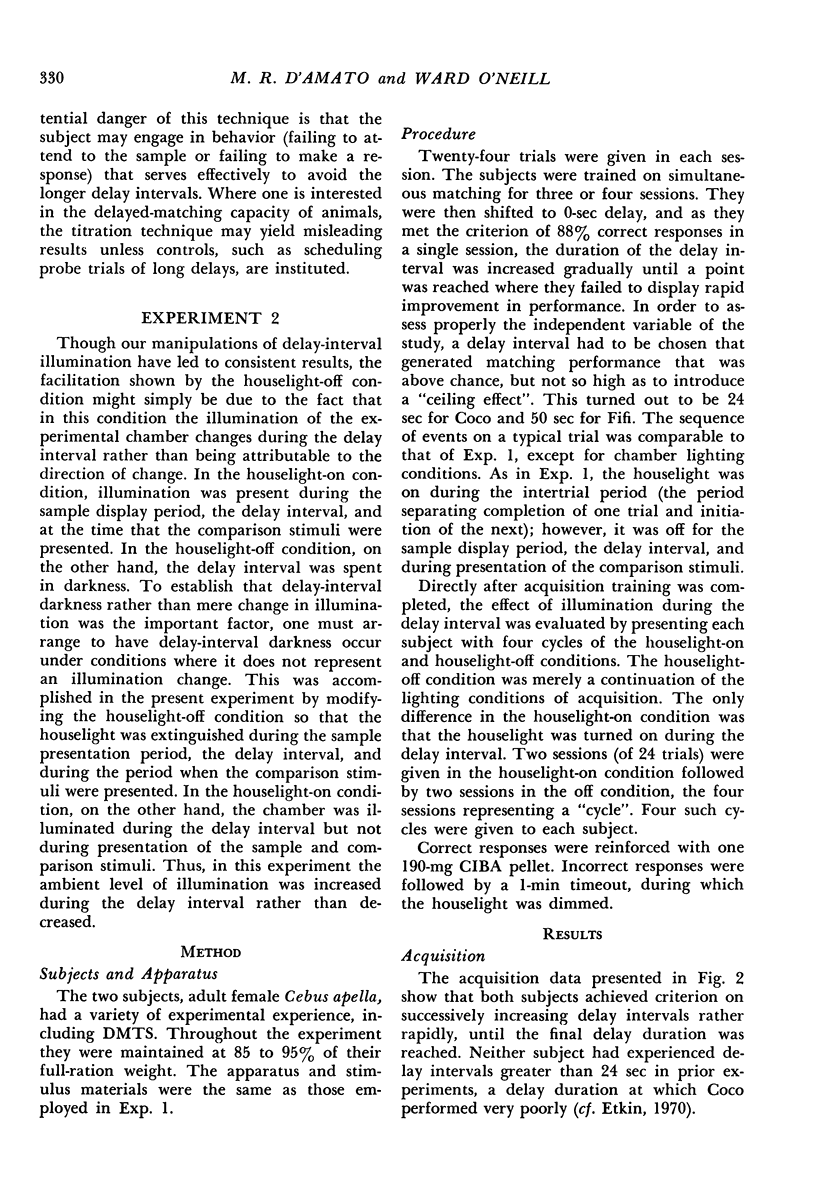
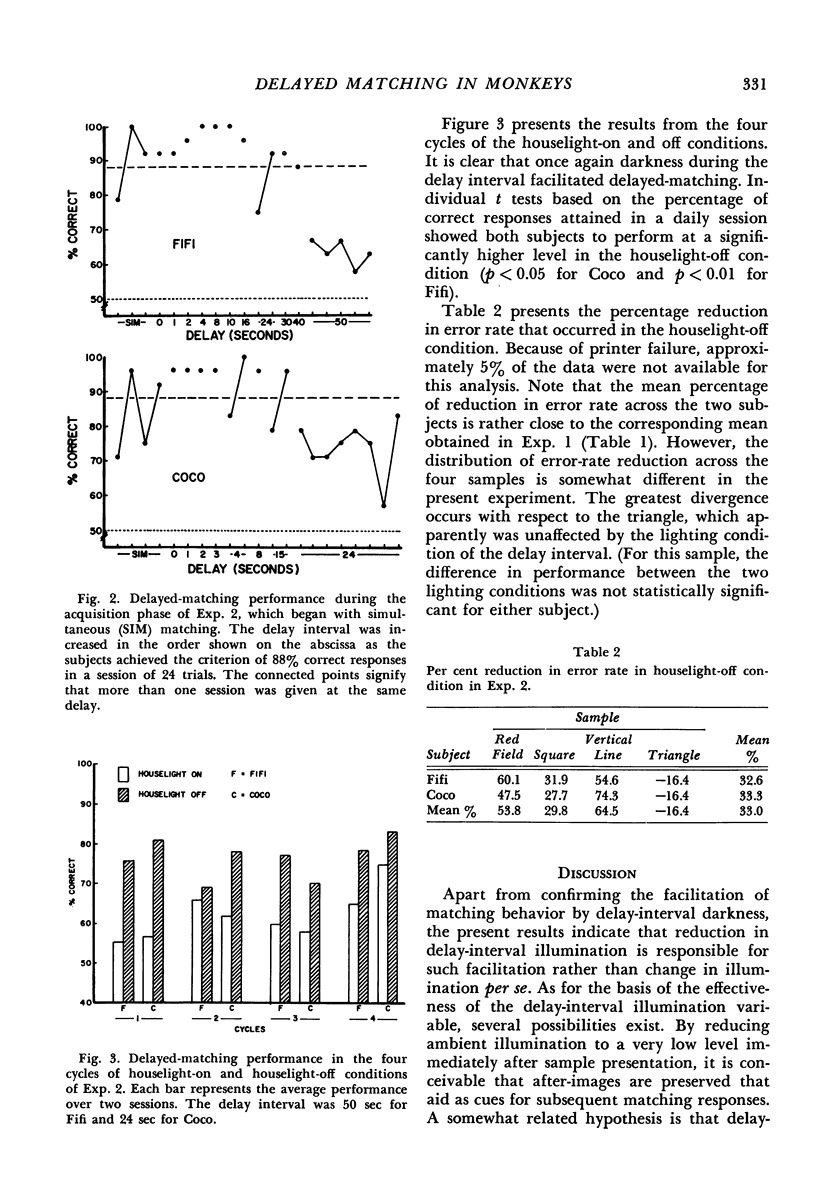
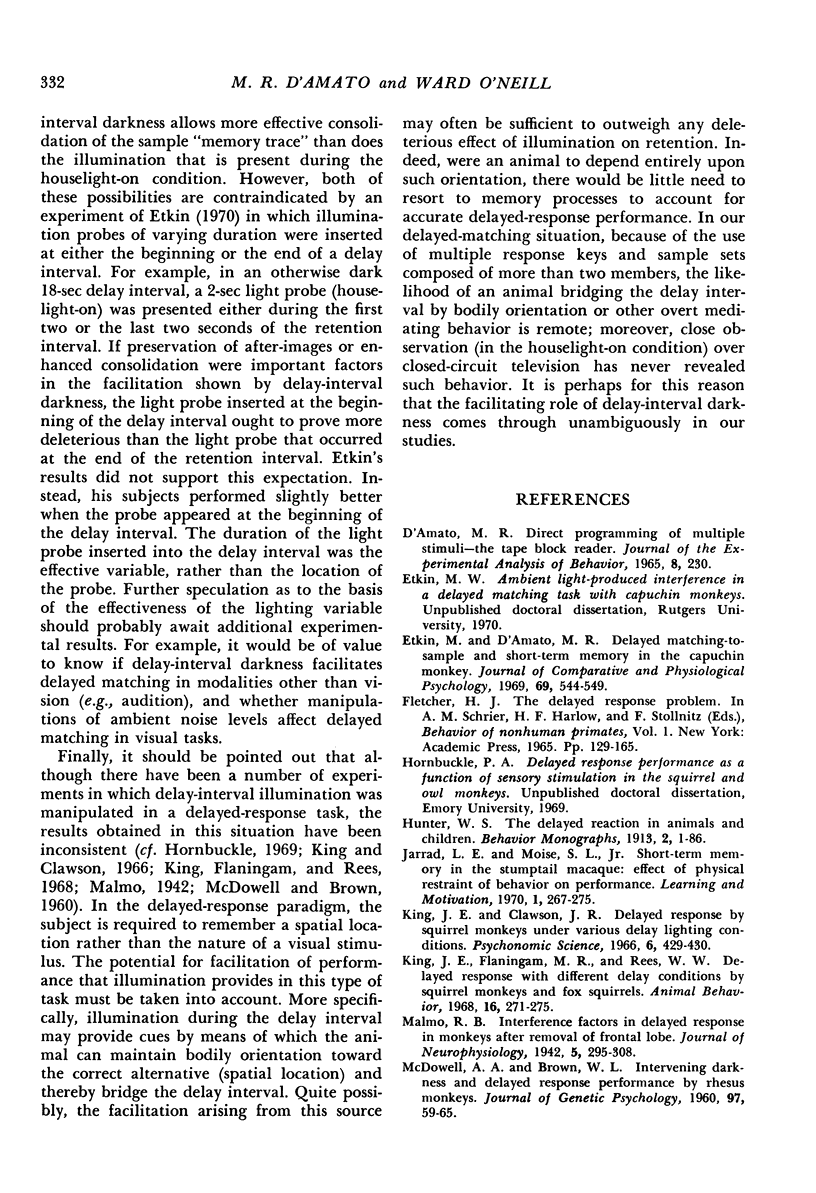
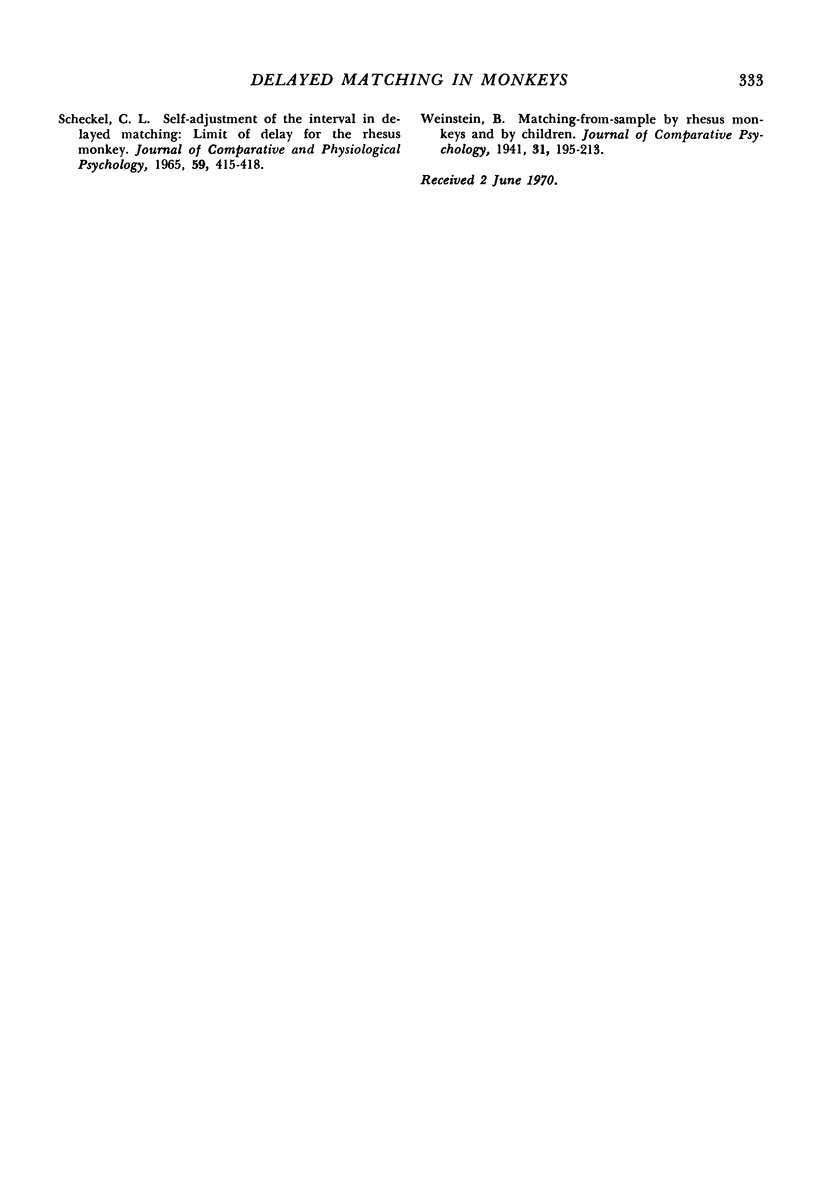
Selected References
These references are in PubMed. This may not be the complete list of references from this article.
- D AMATO M. R. DIRECT PROGRAMMING OF MULTIPLE STIMULI--THE TAPE BLOCK READER. J Exp Anal Behav. 1965 Jul;8:230–230. doi: 10.1901/jeab.1965.8-230. [DOI] [PMC free article] [PubMed] [Google Scholar]
- Hoshino K., Yokoyama T. [Effect of whole body vibration on speech function, with special reference to voice articulation]. J Comp Physiol Psychol. 1969 Nov;69(3):544–545. [PubMed] [Google Scholar]
- King J. E., Flaningam M. R., Rees W. W. Delayed response with different delay conditions by squirrel monkeys and fox squirrels. Anim Behav. 1968 Apr-Jul;16(2):271–275. doi: 10.1016/0003-3472(68)90008-0. [DOI] [PubMed] [Google Scholar]
- SCHECKEL C. L. SELF-ADJUSTMENT OF THE INTERVAL IN DELAYED MATCHING: LIMIT OF DELAY FOR THE RHESUS MONKEY. J Comp Physiol Psychol. 1965 Jun;59:415–418. doi: 10.1037/h0022058. [DOI] [PubMed] [Google Scholar]


